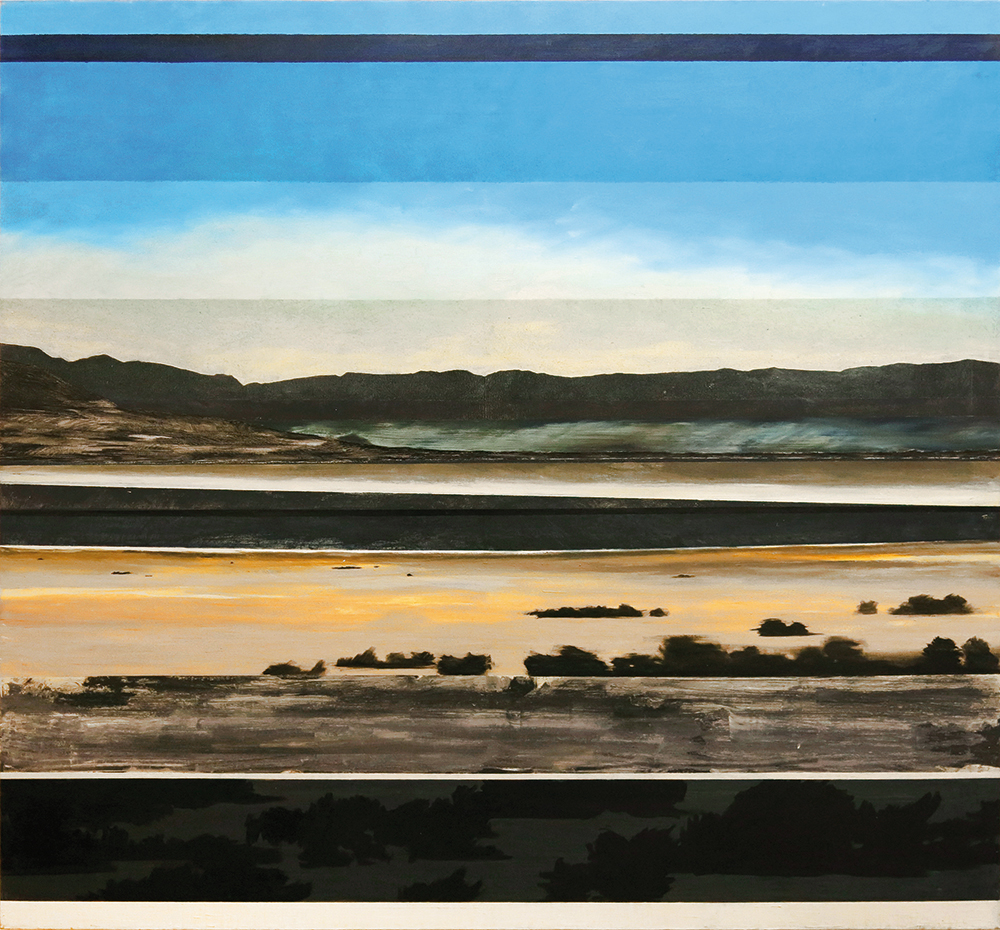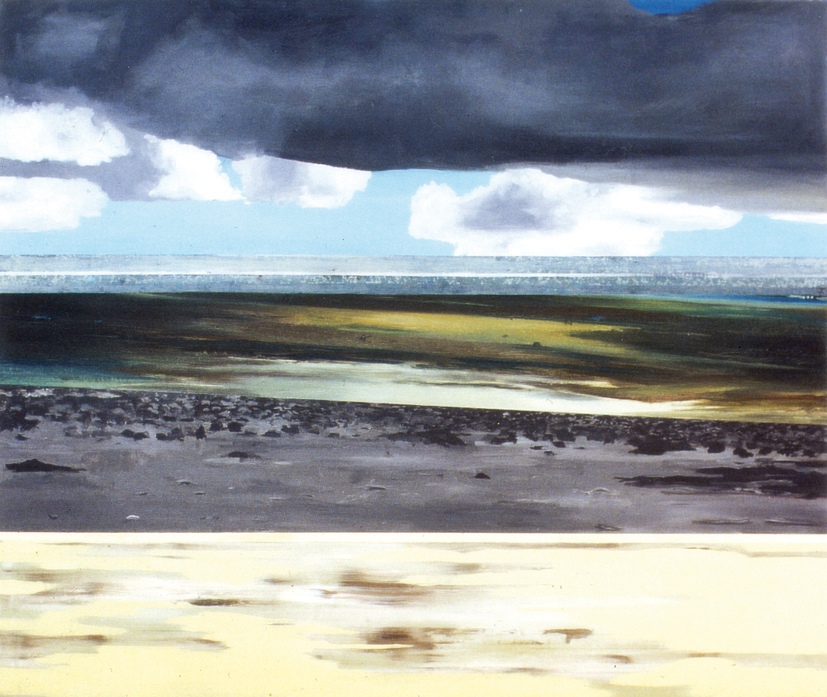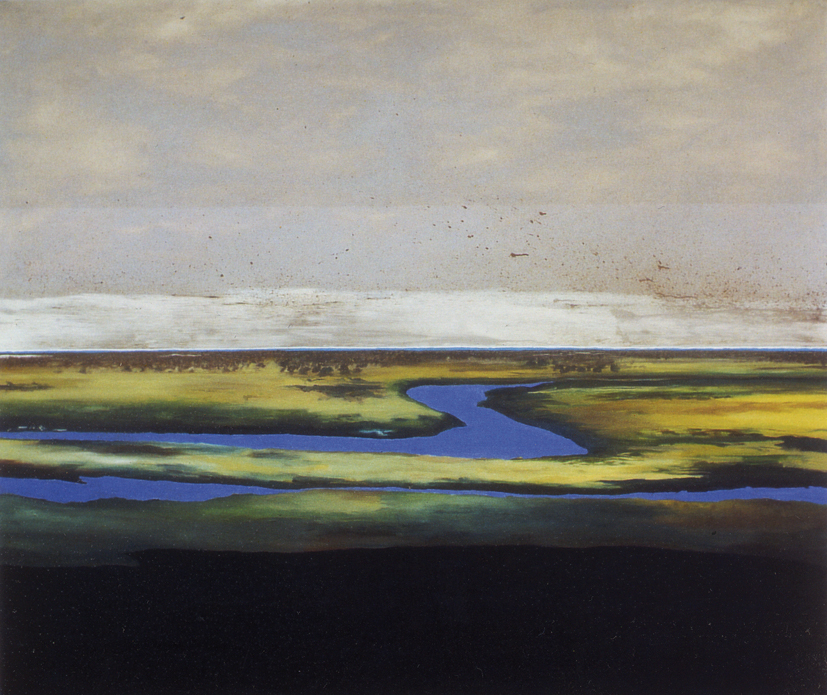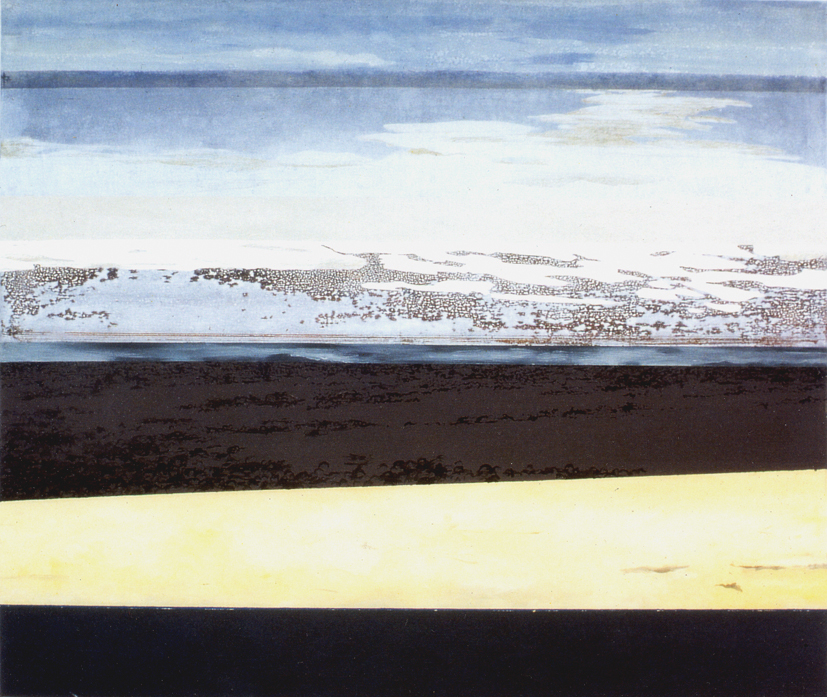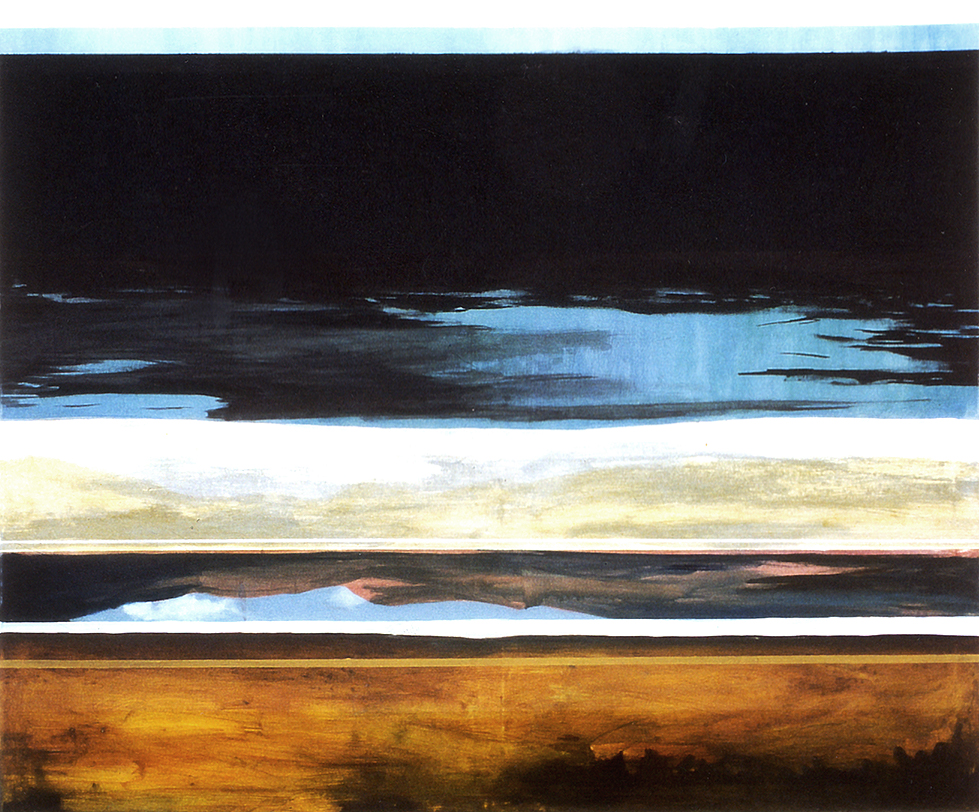 Ohne Titel (Landschaft Bolivien) IV (untitled (landscape bolivia IV), 1999, oil, acryl and lack on canvas, 115 x 135 cm
Ohne Titel (Landschaft Bolivien) V (untitled (landscape bolivia V), 1999, oil, acryl and lack on canvas, 140 x 150 cm
Ohne Titel (Landschaft Bolivien) I (untitled (landscape bolivia I), 1999, oil, acryl and lack on canvas, je 120 x 140 cm
Ohne Titel (Landschaft Bolivien) II (untitled (landscape bolivia I), 1999, oil, acryl and lack on canvas, je 120 x 140 cm
Ohne Titel (Landschaft Bolivien) III (untitled (landscape bolivia I), 1999, oil, acryl and lack on canvas, je 120 x 140 cm |
The Bolivian plateauMan lives and dies in what he sees. But he only sees what he thinks. (Paul Claudel)
Represented is the experience of observing an impossibility-it is
impossible to see what one cannot imagine: endlessness, and it's also
impossible to integrate oneself into this landscape that exists
independent from the gaze of the viewer. Impossible, as the paintings
ultimately also suggest, is the calm, ordered gaze of the observer of
this landscape at all. Consistently represented in the paintings is a
moment of motion, that suggest that the viewer is a traveler, who above
all constructs his image of the landscape in his mind, without being
able to actually grasp the landscape. While traveling, a space devoid of
people passes by, that offers him no point of reference. The
recognition of the landscape in one's consciousness, is ultimately only
in and through movement possible: the observer then abandons the notion
of ordering the things around himself from a fixed location. But in and
through the consciousness another thing happens: the grinding facticity
of things is in movement again annulled. Space is relative-and with it
the organizing gaze.
|
